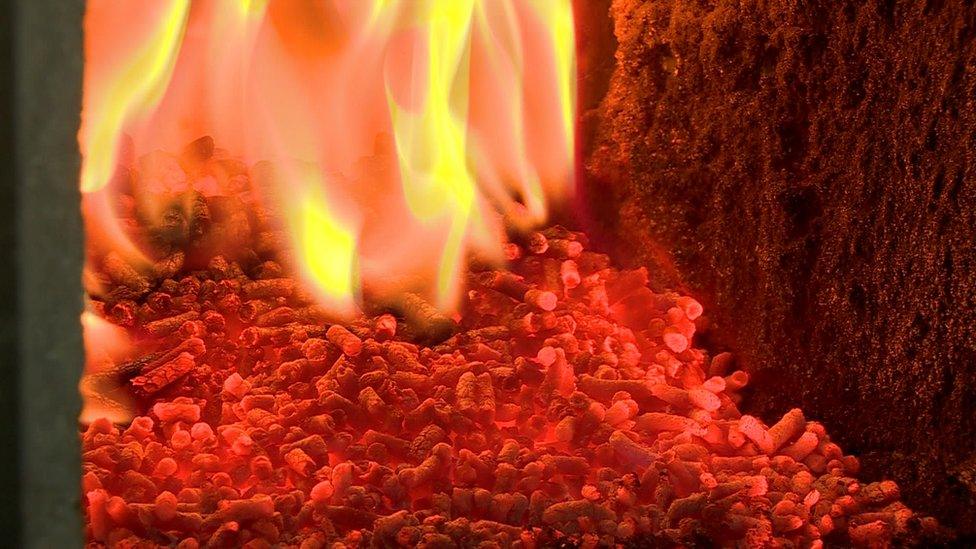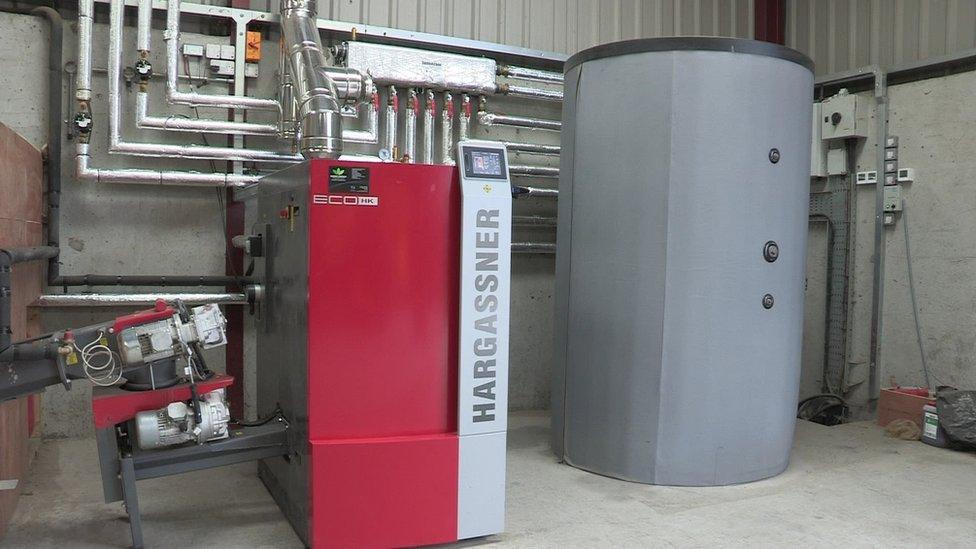RHI case: Assembly 'has power to cut RHI tariffs'
- Published

A group of boiler owners is in court challenging the Department for the Economy's right to put them on a reduced tariff from April 2017
The Northern Ireland Assembly has the power to introduce big cuts to tariffs in the Renewable Heat Incentive (RHI) scheme, a court has been told.
Legislation made provision for modifications to levels of payments.
It was not an "abuse of power" to bring them in, a judge was told.
The law allowed MLAs to approve the changes just before the assembly was dissolved amid a political row over the flawed scheme earlier this year.
A group of boiler owners is in court challenging the Department for the Economy's right to put them on a reduced tariff from April 2017.
They say they had been promised a subsidy at the original, higher tariff for 20 years.
The court has already heard that without cost controls, the overspend in the RHI scheme could be £700m - £200m more than originally estimated.
That money would have to be paid out of Northern Ireland's block grant over the two decades of the scheme.
A barrister for the department said boiler owners could not have a legitimate expectation to "mistaken payments".

Assumptions about how long boilers would run for were flawed, a barrister said
The court has heard claims that the tariff was overgenerous due to flaws in the scheme.
They allowed participants to legitimately earn large sums in subsidy and created what the court heard described as a "perverse incentive" to run the boilers to earn more money.
Legitimate reasons
The lawyer said the court had to decide whether the cost-cutting tariffs had been fair and proportionate.
"Was it an abuse of power or did the assembly act in the general interest?" he asked.
The lawyer said the decision had been taken for "legitimate reasons" in order to protect the public purse; to correct flaws in the scheme; to bring the subsidy back into line with the original intentions and to comply with EU rules on state aid.
He said even if the cost-cutting regulations were quashed it did not mean boiler owners could revert to the higher tariff, because the paying mechanism in the original scheme had been repealed by the new rules.
He said other remedies would have to be explored.
'Deprived of a right'
Later, a barrister for the boiler owners took issue with elements of the department's case.
He said five official documents relating to RHI spoke of "certainty" about the long-term level of tariff.
These included the former Department of Enterprise, Trade and Investment Minister Arlene Foster's letter to banks encouraging them to lend on foot of the scheme.
The barrister said in light of the department's decision to amend the tariffs, such official reassurances looked at best "fundamentally misleading".
He said his clients were being "deprived of a right to a tariff" they had been promised.
The RHI scheme was a government initiative to encourage businesses to switch from fossil fuels to biomass.
Officials said its intention was to pay back the cost of wood pellet boilers and offer firms a 12% rate of return on their investment.
It has been claimed that some businesses were earning rates of return which were multiples of that intended.
Judgement has been reserved.
- Published7 November 2017

- Published23 October 2019
